Top Professors of Neurodiagnostic Technology to Know
Search For Schools
When you click on a sponsoring school or program advertised on our site, or fill out a form to request information from a sponsoring school, we may earn a commission. View our advertising disclosure for more details.
The study and application of neurodiagnostic (ND) technology is, perhaps, one of the most captivating among the entire field of medicine. Indeed, neurodiagnostic technology professionals, or technologists, utilize a set of machines to record and study electrical activity in the brain and nervous system, allowing them to present useful data to medical practitioners in order to assist in the treatment of patients.
And those who decide to pursue a career in neurodiagnostic technology are diving into a healthcare field that is likely to grow significantly in the coming years. According to O*NET OnLine, there is a projected 14 percent growth in employment from 2014 to 2024, or 33,800 jobs altogether. This growth in job opportunities underscores the importance of and need for well-educated, properly trained neurodiagnostic technologists.
Of course, neurodiagnostic technologists require a significant amount of formal training before they are able to obtain certification to work in the field. Because neurodiagnostic technologists must be able to read and interpret data directly connected to the nervous system, they must be well-versed in a number of techniques and skills, and have a strong understanding of the brain and its structure and function.
As such, anyone interested in pursuing a career as a neurodiagnostic technologist should not only consider enrolling in a reputable, CAAHEP-accredited program, but also one that allows them to study under skilled professors with years in the field, like one of the experts listed below.
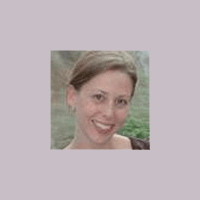
Liberty Simmons
BS, R EEG T, CNCT, CNIM, CLTMCrozer-Chester Medical Center - Springfield , Pennsylvania
Liberty Simmons is the director of the school of clinical neurophysiology at Crozer-Chester Medical Center, which maintains a corporate headquarters in Springfield, Pennsylvania. She previously worked as an adjunct faculty member in the neurodiagnostic technology program at Bryn Mawr College, as well as the EEG lab coordinator at the Hospital of the University of Pennsylvania in Philadelphia. She has experience working with EEG technology, data analysis, and data management, among other fields.

Jacquelyn Polito
MA (Healthcare Administration), BS, AS (ND Technology)Labouré College - Milton , Massachusetts
Jacquelyn Polito is a lecturer on neurodiagnostic technology at Labouré College in Milton, Massachusetts, as well as the department chair. Prior to teaching at Labouré College, she was the neurodiagnostics department supervisor at the South Shore Hospital in Weymouth, Massachusetts, and her areas of expertise include neurodiagnostics, polysomnography, and lab management.
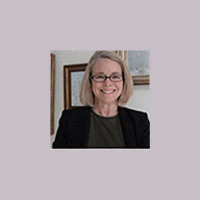
Margaret Barlow
BALabouré College - Milton , Massachusetts
Margaret Barlow is the assistant chairperson and lecturer on the neurodiagnostic technology faculty at Labouré College in Milton, Massachusetts. She has 30 years of experience in the field of neurodiagnostic technology, and she currently teaches four courses on the subject at this institution. He academic interests include program development in the field of neurodiagnostic technology, and her areas of expertise include neurophysiologic intraoperative monitoring.
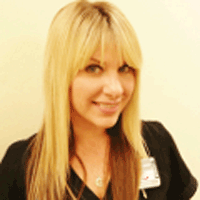
Laura Krudo
R EEG TNeurodiagnostic Technology Institute - Orlando , Florida
Laura Krudo is an instructor at the Neurodiagnostic Technology Institute in Orlando, Florida. She is the senior neurodiagnostic technologist at an Orlando children’s hospital, and she has extensive experience working with adult and pediatric neurological patients.
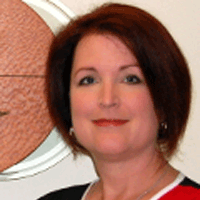
Suanne Maier
R EEG T, R NCS TNeurodiagnostic Technology Institute - Orlando , Florida
Suanne Maier is an administrator and instructor at the Neurodiagnostic Technology Institute in Orlando, Florida, where she also serves as the director of academics. She has over 14 years of clinical experience with electroencephalograms and evoked potentials, and her passion lies in teaching others how to obtain the most accurate and best neurodiagnostic recordings to aid physicians in making correct diagnoses.
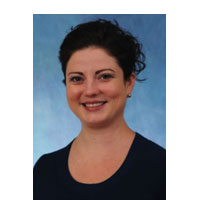
Mary Ellen Wells
PhD, RPSGT, R EEG T, R NCS TUniversity of North Carolina -
Methodology
1. Current affiliation with institution – most importantly, all of these individuals on this list are currently affiliated with and teaching at the institutions listed next to their names.
2. Neurodiagnostic professionals – in addition to current affiliation, all of the educators mentioned on this list work specifically in the field of neurodiagnostic technology. This should be an important consideration for anyone interested in pursuing a degree or certification in this area of study, as some teachers in a program focused on neurodiagnostic technology may instead hold a position in another field of healthcare technology, yet teach courses on a number of different subjects.
3. Experience as neurodiagnostic technicians or in the field of neurology – the educators on this list all have experience working in the field of neurodiagnostic technology or neurology.
4. Current work at a degree/certificate-granting institution – finally, each one of the educators on this list currently holds a position at a degree/certificate-granting institution, one at which students are able to pursue a bachelor’s or associate degree, or even a certificate in the field of neurodiagnostic technology.

